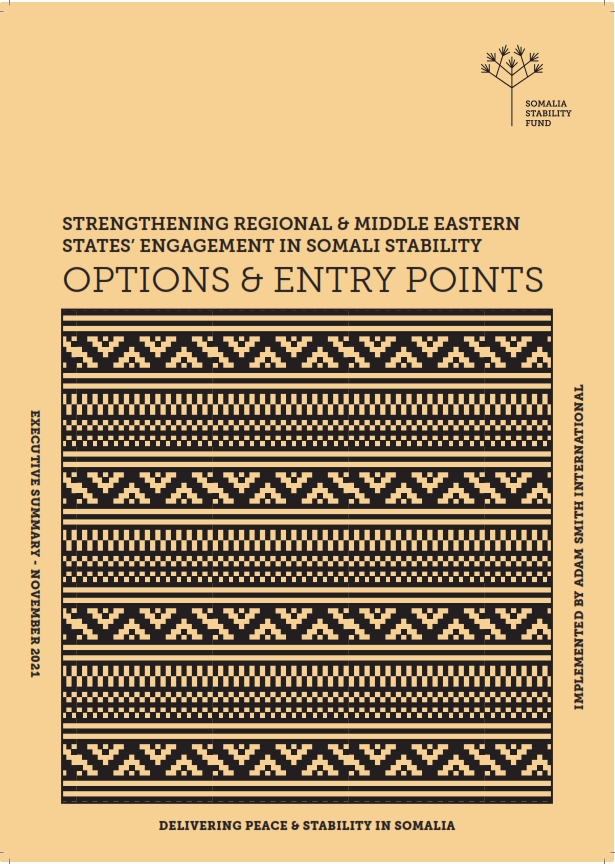August 31, 2021
Tags: Conflict Fault Lines

Political (in)stability in Somalia is influenced as much by the behaviour of domestic stakeholders as it is by foreign states’ involvement in Somali politics. In recent years, this has been notably prominent through the involvement of Gulf states, especially since 2017, and the evolving political interests and objectives of regional states, such as Kenya, Ethiopia, Djibouti and Eritrea. This research seeks to unpack the ways in which regional and Gulf states’ behaviour affect political (in)stability in Somalia and seek to identify avenues for mediation and mitigation of adverse impacts.
It identifies five areas for engagement:
This paper forms part of the Funds wider research into long term conflict transformation, advancement of the political settlement and stabilisation.